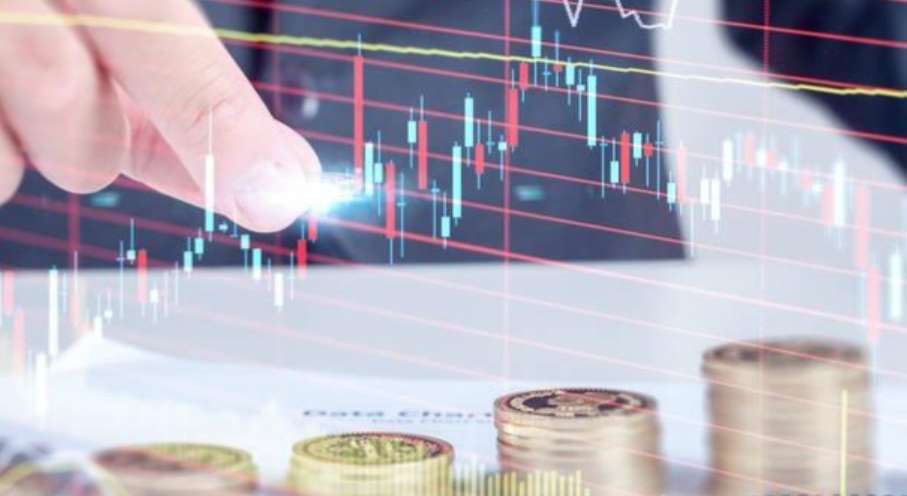Buffett's Departure: Preparing for a Financial Crisis
Advertisements
In recent times, Warren Buffett's investment firm, Berkshire Hathaway, has made headlines as it disclosed its latest investment holdings. For many everyday investors, Buffett’s portfolio can serve as a compass, providing guidance for sound financial decisions. However, a closer inspection reveals a significant pivot in Buffett’s investment strategy that elicits both concern and reflection within the wider investing community.
This latest disclosure indicates that Buffett has almost entirely divested from riskier assets, particularly banks, and has largely anchored his investments in defensive assets. This transition signals a cautious stance amidst uncertain market conditions, and it raises eyebrows about potential impending financial turmoil.
More strikingly, Buffett’s cash reserves have ballooned to a staggering $334 billion, which represents approximately 30% of Berkshire's total market capitalization. This figure marks a new historical high, both in absolute terms and as a proportion of his investment portfolio. Such a hefty cash position typically indicates that an investor is bracing for disruption or a downturn, a sentiment that echoes loudly in the halls of financial analysis.
Adding to this complexity, Buffett has largely missed out on the recent tech stock bull run, aside from his long-standing investment in Apple, which he purchased nearly a decade ago. It’s not entirely surprising, however, as Buffett has famously remained skeptical of technology stocks, often criticizing their volatility and potential lack of intrinsic value. Contemporary Apple shares, while innovative, have transitioned towards being more of a robust consumer brand rather than a tech juggernaut dependent solely on groundbreaking technological advancements.

In an intriguing twist, even as Buffett significantly reduced his stake in Apple, the stock price continued to soar, reaching new all-time highs. This phenomenon raises questions regarding his timing and strategy, suggesting potential discrepancies between market movements and his cautious investment philosophy.
Berkshire's recent stock positions might indeed be indicative of Buffett preparing for a major crisis, one that he has been anticipating for a couple of years now. But the crisis has yet to materialize, all while the U.S. tech sector has run rampant, engulfed in what many deem the most monumental bubble in history—one that is largely fueled by artificial intelligence advancements.
This tech stock bubble finds its driving force in a frenzied competition among six major technology companies that are heavily investing in AI. Their substantial purchasing of NVIDIA chips serves as the catalyst for an influx of capital, producing a peculiar scenario where value creation seems divorced from rational investment metrics—a classic example of financial engineering at play. I recently authored an exploration of how these exorbitant hardware investments, which promise little immediate return, are categorized as capital expenditures. This manipulation enhances profit margins through extended depreciation periods on financial statements, albeit with dubious long-term sustainability.
Consider the case of XAI, an enterprise under Elon Musk, which spent a remarkable $200,000 on the latest NVIDIA H100 graphics cards that boasted a computational power 263 times greater than that of their previous offerings. Yet, this extravagant investment yielded only a 10% performance increase, prompting serious inquiries as to whether such arms races in technology carry any substantive worth moving forward.
From a technology development perspective, while some optimists might argue that we are still witnessing performance enhancements and an enduring façade of technological progress, many experts believe that the development pathway for closed-source models has reached a critical juncture. With open-source technologies proliferating and gaining traction, closed-source frameworks now face mounting hurdles in terms of innovation velocity and practical applications. Consequently, tech companies overly reliant on proprietary technologies may soon grapple with compounded dilemmas of obsolescence and intensified market rivalry.
The present scenario showcases that American hedge funds have nearly fully leveraged their positions, with their cash reserves dropping to a mere 3.5%—the lowest in 15 years. In tandem, retail investors have increased their holdings to a staggering 97%. This dramatic shift indicates that market participants possess limited capital left for additional investments. Retail investors, who are currently the most active buyers, risk becoming the final holders of this unprecedented bubble as institutions begin to pivot towards net selling, highlighting alarming market risks.
As the market finds itself at this precarious juncture, any shift in sentiment could prompt a rapid decline in tech stock valuations. Retail investors, often lacking the requisite expertise and risk management protocols, may suffer severe losses during market fluctuations. In contrast, institutional investors, armed with specialized research teams and breadth of experience, can adeptly recalibrate their portfolios to navigate emerging risks.
In conclusion, the adjustments in Buffett’s portfolio serve as a clarion call regarding the heightened risks permeating the market landscape. The swelling of the tech stock bubble not only threatens individual investor wealth but also jeopardizes the overarching stability of financial ecosystems. Investors must remain grounded in their assessments, exercising caution and ensuring they conduct thorough examinations of market fundamentals before committing to investments. The essence lies in making informed decisions while adequately accounting for potential risks and prudently diversifying asset allocations to weather any forthcoming storms.
Leave A Comment